
Work shoes are a staple for millions of people who spend their days on their feet. Whether you work in healthcare, retail, construction, or any other industry that requires extended periods of standing or walking, your choice of footwear can significantly impact your comfort and productivity. This is where insoles come into play. Adding insoles to your work shoes can provide the comfort and support you need, making those long hours more manageable.
Work Shoe Insoles:Why Choosing the Right Insole is Crucial?
Insoles are often overlooked as part of your daily work gear. Prolonged exertion may lead to various health problems such as plantar fasciitis and bunions. However, choosing the right insoles not only reduces the pressure on your feet but also improves your overall comfort and enhances your work efficiency.
Comfort and Support: One of the greatest functions of work shoe insoles is to provide comfort and support. Whether you're standing or walking, insoles can take pressure off the bottom of your feet and reduce fatigue. For example, memory foam insoles adjust to the shape of your feet for customized comfort, while arch-supporting insoles provide extra support to avoid the discomfort of flat feet or high arches.
Cushioning and Shock Absorption: The cushioning and shock-absorbing materials of work insoles are the secrets to what constitutes comfort, relying heavily on the materials and design of their insides. A few common materials on the market with cushioning effects include: memory foam, EVA foam, gel, rubber, and soft polyurethane. They provide good shock absorption and cushioning, can absorb a lot of impact, and reduce pressure on the knees and back, making them especially suitable for people who need to stand or walk for long periods of time.
Absorb sweat without stinking feet: Choosing insoles with antibacterial and deodorizing features can effectively inhibit the growth of bacteria and fungi. Many high-quality insoles are made of antibacterial materials, such as bamboo charcoal fiber, silver ions and activated charcoal, etc. They can effectively adsorb sweat, decompose odors, and keep the insoles fresh for a long time.

Providing Comfort and Support: Why These Work Environments need Insoles?
Retail and Service Industry:
Comfortable insoles are essential for retail and service industry employees who spend long hours on their feet. Standing for long periods of time can lead to foot fatigue, pain, and even more serious joint problems. Insoles with anti-fatigue features can effectively alleviate these problems.
Construction and Manufacturing:
Construction workers and manufacturing personnel need to work on rough and uneven surfaces. Insoles can provide extra cushioning and support to reduce the impact of ground shock on the feet. At the same time, durable insoles can withstand moisture, dust, and heat in the work environment.
Medical Industry:
Medical industry workers are often required to stand or walk for long periods of time. To avoid lower limb fatigue and joint pain, it's important to choose the right insoles. Antimicrobial insoles also reduce odor and bacterial growth, keeping feet dry.
Logistics and transportation industry:
Warehouse workers and distribution staff need to walk or carry items for long periods of time. Insoles can provide stable arch support and cushioning to help reduce the pressure generated when walking.
What are the Common Types of Insoles for Work Shoes?
Full-length insoles
The full-length insole is designed to cover the entire sole, including the toe, foot, and heel areas. This design provides balanced support and comfort for the entire foot.
A full-length insole is typically thicker than a 3/4 footbed and therefore provides more shock absorption and cushioning, making it particularly suitable for work environments where there are long periods of standing or walking.
Full-length insoles are particularly suitable for most boots, work shoes, sneakers, and other full-coverage shoes. They fit the contours of the sole of the foot perfectly and provide full support for the foot.
Suitable for jobs that require long periods of standing or walking, such as retail, catering, site work, manufacturing, and other industries.
Suitable for people who frequently walk on hard or uneven surfaces.
Suitable for people who need extra support and comfort, especially those with problems such as plantar pain and arch instability.
3/4 length insole
Designed to be shorter than a full footbed, 3/4 length insoles usually only cover the ball of the foot and the heel portion of the foot, with no coverage at the toes. This design makes them more suitable for certain compact shoes such as high heels, low tops, and certain work shoes.
Due to their smaller size, 3/4 length insoles are lighter and can provide support to the foot without making the shoe feel overcrowded, making them especially suitable for more compact shoe types.
While not covering the entire bottom of the foot as well as a full footbed, the 3/4 length insole still provides the necessary support for the arch and heel and helps to relieve foot fatigue.
Suitable for people who wear compact shoe types, such as some work environments that require low-top shoes or high heels.
Suitable for users who require comfort and support but don't want a shoe that is too heavy.
Suitable for people with mild or moderate arch problems, or those who have a high demand for foot comfort but don't need full footbed support.
Custom insoles
Custom insoles are designed specifically for each person's foot shape to provide the most precise support and comfort. They are usually adjusted to specific foot problems (such as flat feet, high arches, excessive pronation, etc.) to provide the best biomechanical support.
Custom insoles are particularly suitable for people with foot diseases or special needs, such as plantar fasciitis, diabetic foot, sports injuries, etc.
Because professional foot scans and personalized production are required, the price of custom insoles is usually higher, but it is a very worthwhile investment for those who need special support.
Suitable for people with more serious or special foot problems, such as flat feet, high arches, diabetic feet, etc.
Suitable for work environments that require highly precise support, such as workplaces where you stand for long periods of time or high-intensity sports training.
Suitable for users who have high requirements for comfort and support.
Over-the-counter insoles
Over-the-counter insoles are suitable for most ordinary consumers and do not require special customization. They can be easily purchased in pharmacies, supermarkets, online stores, etc. They are usually standardized in size and design, and designed to provide a wide range of comfort and support.
Compared with custom insoles, over-the-counter insoles are more affordable and suitable for people with limited budgets or those who need general comfort support.
There are many types of over-the-counter insoles on the market, including insoles designed for high arches, low arches, sports, cushioning, and other different needs.
Suitable for people with mild foot problems or who just want to improve daily comfort.
Need insoles for ordinary work shoes, sports shoes, casual shoes, etc.
People with limited budgets but want to improve foot comfort through insoles.
How to Choose the Right Insole for Work Shoes?
When choosing the right work insoles, you need to know what your arch type is, and consider your work environment and comfort needs, here are a few key factors to help you make the best choice:
Common Arch Types
Normal Arch
People with normal arches have a more balanced foot profile, neither too high nor too low, with a moderate arch height.
Their gait is usually neutral and the foot is not excessively internally (pronated) or externally (externally rotated).
For people with normal arches, a moderately supportive insole is sufficient; over-support may cause discomfort.
Medium-firm insoles are usually the most appropriate; these insoles provide comfort and reduce impact on the gait.
Memory foam and EVA insoles are suitable for everyday use, providing comfort and reducing friction.
Flat Feet
Flat feet are defined as having a low or barely curved arch, with the inside of the sole of the foot almost completely touching the ground when walking.
Due to the lack of arch support, people with flat feet are prone to foot, knee, and even lower back pain.
People with flat feet need more arch support, especially medial support, to avoid excessive pronation.
Choose insoles with firm arch support, such as orthotic insoles designed for flat feet. These insoles usually have extra arch support as well as a medial arch design.
Insole materials such as EVA, rigid plastic, or gel insoles can provide greater support and stability.
High Arch
High arches refer to abnormally elevated arches of the feet, where the middle portion of the sole of the foot has less contact with the ground, usually creating a pronounced pronation when walking.
People with high arches tend to feel more pressure on the heel or ball of the foot and often experience pain in the soles of the feet, knees, and back.
Individuals with high arches need shock absorption and comfortable foot support, especially vital for relief in the heel area.
Choose insoles with arch support that also offer softer materials, such as memory foam or gel insoles, which are effective at relieving pressure and absorbing shock as you walk.
Insoles should be designed with good heel shock absorption and proper flex support.
Work environment requires
Standing or walking for a long time:
Support and comfort are needed to prevent fatigue or foot pain caused by standing or walking for a long time.
Choose insoles with cushioning effects, such as memory foam, gel, or EVA materials, which can effectively disperse pressure and reduce the impact on the soles of the feet, suitable for work environments where you stand or walk for a long time.
Humid or hot environment:
Insoles with good breathability are needed to ensure dry feet and prevent moisture accumulation and foot odor.
Choose insoles with good breathability, such as mesh-designed EVA insoles or insoles with antibacterial function, which can effectively regulate moisture and keep feet dry, suitable for use in humid or hot environments such as kitchens and factories.
Heavy work or high-impact activities:
Strong support and cushioning functions are needed to reduce the pressure caused by impact.
Choose insoles with strong cushioning and support functions, such as multi-layer insoles combined with EVA + memory foam, or specially designed anti-fatigue insoles. These insoles can reduce pressure on the soles of the feet, knees, and spine, and reduce pain caused by high-intensity activities.
Comfort needs
Cushioning: High-quality insoles can effectively disperse the impact when walking and reduce the pressure on the soles of the feet. Memory foam and gel insoles are two very popular cushioning materials that can provide excellent comfort.
Support: Insoles need to provide appropriate support according to the arch type. For users with flat feet and high arches, it is very important to choose insoles with extra support.
Antibacterial breathability: Comfortable insoles also need to keep feet dry. Highly breathable insoles can reduce foot sweat and avoid bacteria and odor.
Abrasion resistance: Will the insole wear quickly after long-term use? EVA and hard plastic insoles generally have high abrasion resistance and can maintain a good shape for a long time under heavy loads.
Do Over-the-Counter Insoles Work?
Over-the-counter insoles are universal and adaptable in design and are usually designed to meet the basic needs of most people with essential features such as comfort, cushioning, and support for most scenarios in daily life that require comfortable support. Even though they are not customized, they can still provide significant benefits.
Over-the-counter insoles are useful for the general population with foot problems, especially those users who feel discomfort such as mild foot pain and fatigue after standing or walking for long periods of time. They usually fulfill daily needs and provide relief from general foot discomfort. It is a very effective, economical, and convenient solution.
The final choice depends on your individual needs, and over-the-counter insoles are a cost-effective option for preventing further foot problems compared to customized insoles.
How to Wear Insoles Correctly?
1. Choosing the right insole
Before wearing insoles, first, make sure that you have chosen insoles that are suitable for your feet and shoes. Choose according to arch type, shoe type, insole comfort, and material.
2. Insoles placed correctly inside the shoe
When placing the insole in the shoe, make sure it is completely flat and fits the bottom of the shoe. Remove the original insole → Check the size of the insole → Place the insole flatly inside the shoe.
3. Put on the shoes and check the comfort level
After putting on the shoes, walk around a little to check that the insoles are in place and comfortable. Feel if the support is comfortable → Take a few steps to see if the insole slips around → If you have pain or discomfort on the bottom of your feet after wearing the shoe, you may need to reposition the insole or choose a more suitable style.
4. Gradually adapt to the insole
If you are using insoles for the first time, especially customized insoles or special function insoles, it is recommended to adapt gradually. Give yourself a few days to adapt, you may feel slight discomfort in your feet → gradually increase the time of use, and let your feet slowly adapt to the supportive feeling brought by the new insole → if you feel uncomfortable in the process of adapting, you can take a rest appropriately and re-check the insole to see if it is suitable or consider whether you need to change to another type of insole.
5. Regularly check the insoles
Although insoles serve a good function, they will wear out over time and the support and comfort may decrease. Check for wear and tear. Significant wear or deformation may require replacement → Keep them clean. Insoles are prone to accumulating dirt and odors after prolonged use. Insoles should be cleaned regularly to maintain hygiene.
Choose one that can effectively prevent further foot disorders.
Should You Always Wear Insoles?
It depends on your personal needs and foot health. If your job requires you to stand or walk for a long time, or you have foot problems, insoles will be very necessary. However, people who do not have special needs, you can decide whether to wear insoles according to your comfort.
How Much Should I Spend on Insoles?
The price range of insoles is wide, ranging from a few dollars to several hundred dollars. For ordinary daily work needs, moderately priced over-the-counter insoles can meet the needs. For specific medical needs, custom insoles are more expensive, depending on the individual's foot condition.
How to Maintain and Clean Work Shoe Insoles?
The cleaning and maintenance of insoles directly affect their service life and comfort. Different materials of insoles have different cleaning methods. Here are some common maintenance tips:
Memory foam insoles: You can wipe them with a damp cloth, avoid soaking the insoles in water. When drying, place in a ventilated place and avoid exposure to the sun.
Gel insoles: Gently wash with clean water and neutral detergent, avoid using strong detergents. Dry thoroughly after cleaning.
EVA insoles: EVA insoles are durable and easy to clean. They can be gently wiped or soaked in clean water for cleaning. Make sure to dry before use.
Leather insoles: Leather insoles should avoid excessive cleaning. You can wipe the surface dust with a dry cloth and use leather care oil regularly for maintenance.
Long-term Health Effects of Insoles
Wearing the right insoles for a long time can have a profound impact on foot health, especially for workers who stand or walk for long periods of time. Insoles can effectively share the pressure on the feet and reduce long-term accumulated injuries.
Reduce foot fatigue: Insoles can provide proper support to help distribute the body weight and reduce the pressure on the soles of the feet. When the feet are better supported, the fatigue of the legs and back will also be reduced.
Relieve plantar fasciitis: Plantar fasciitis is a common foot disease that mainly manifests as severe pain in the heel. The right insoles can effectively relieve this pain, especially arch support insoles, which can reduce the pressure on the plantar fascia.
Prevent joint and muscle problems: Long-term wearing of unsuitable shoes or insoles may cause unstable foot structure, which may affect the health of the knees, hips, and even spine. The right insoles can not only reduce the pressure on the feet but also provide the correct alignment of the feet to prevent other joint and muscle problems.
Long-term health investment: Although high-quality insoles may cost a little more, they can effectively prevent and relieve pain, and in the long run, can avoid medical expenses caused by foot problems. Therefore, choosing the right insoles can be seen as a long-term investment in your health.

PCSsole Brand Insoles Recommended
PCSsole brand insoles stand out in the market with their excellent design and functionality, becoming the first choice for many workers who stand or walk for a long time. Its innovative catenary design inspiration and biomechanical support structure can effectively improve foot comfort and reduce discomfort caused by standing for a long time.
Advantages of PCSsole insoles:
Catenchary design: The design of PCSsole insoles is inspired by the principle of catenary, providing optimal support for the arch and heel, helping to reduce pressure and fatigue.
Biomechanical support: The insole combines modern biomechanical technology to ensure that your feet are well aligned with your knees, hips, and back, thereby reducing unnecessary burden.
Multi-level comfort: PCSsole insoles use multiple layers of comfortable materials to provide superior cushioning effects, reduce impact damage to the feet, and are suitable for environments where you stand for a long time.
Breathable and antibacterial: Use breathable materials to keep your feet dry and prevent odor and bacteria.
Suitable for people:
Workers who stand or walk for a long time, such as medical personnel, retail employees, etc.
People with foot problems such as plantar fasciitis, hallux valgus, flat feet, etc.
People who need extra arch support or cushioning.
By using PCSsole insoles, you can say goodbye to fatigue, relieve pain, and make every step easier. Whether you are at work, in sports, or in daily life, PCSsole insoles can provide the best support and comfort for your feet.


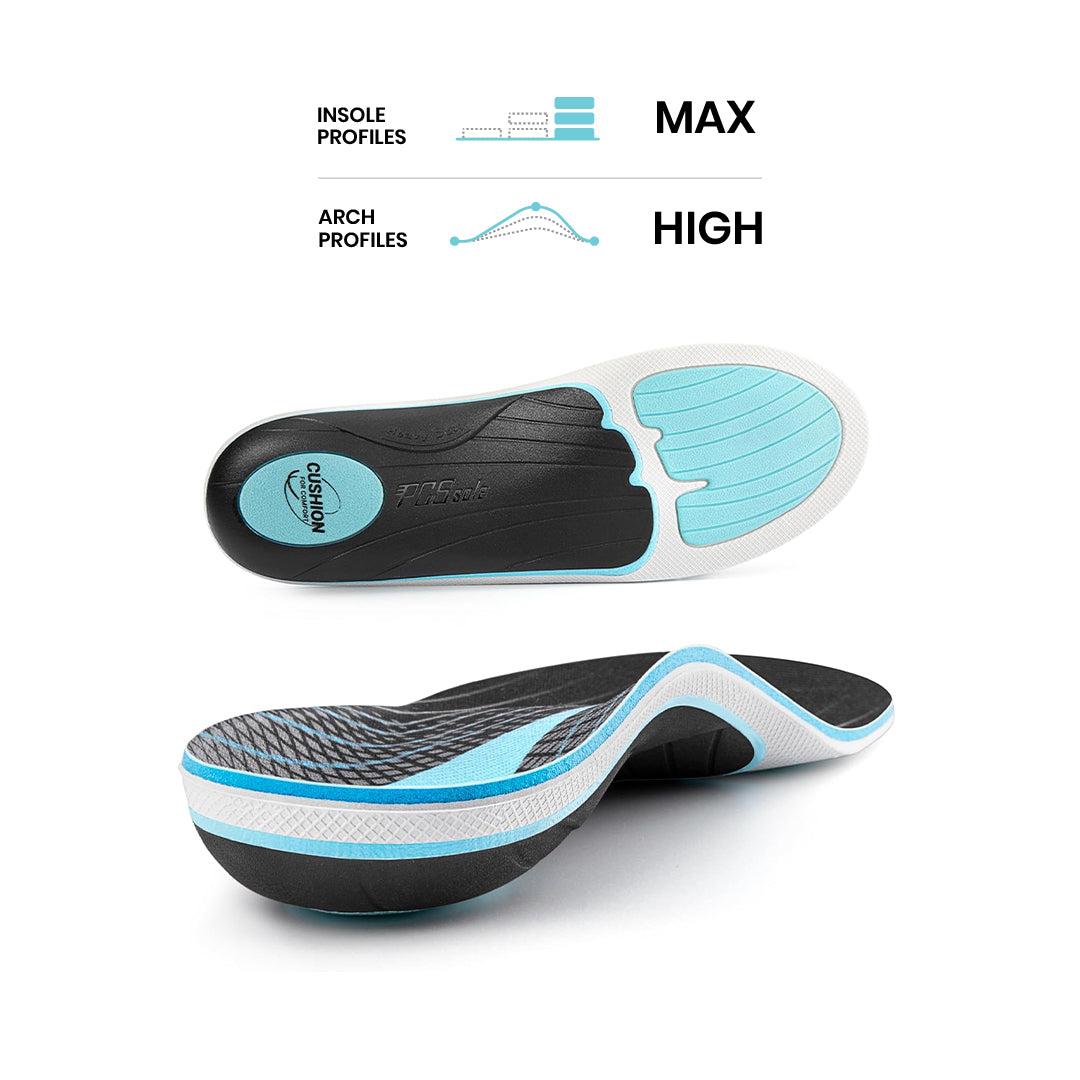
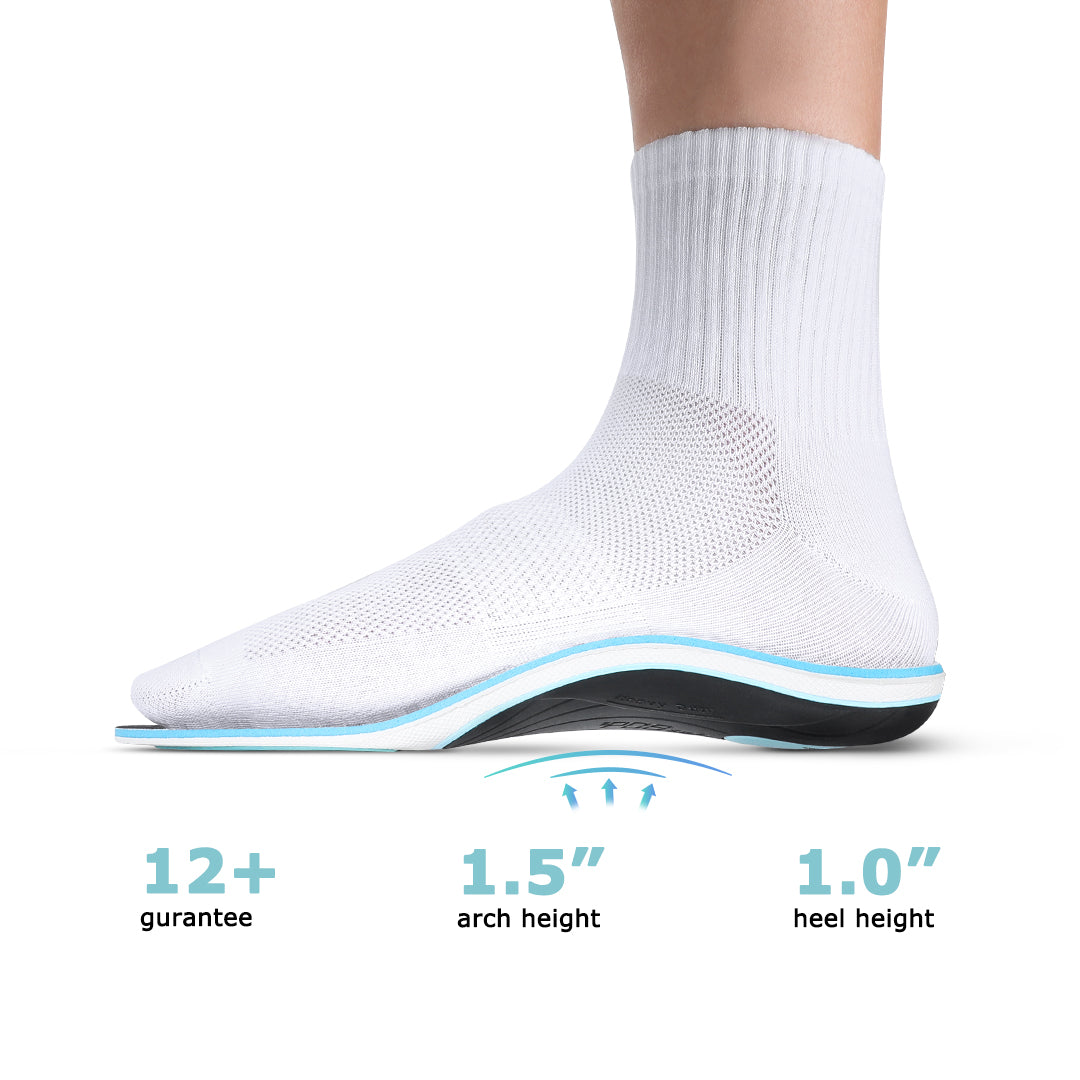
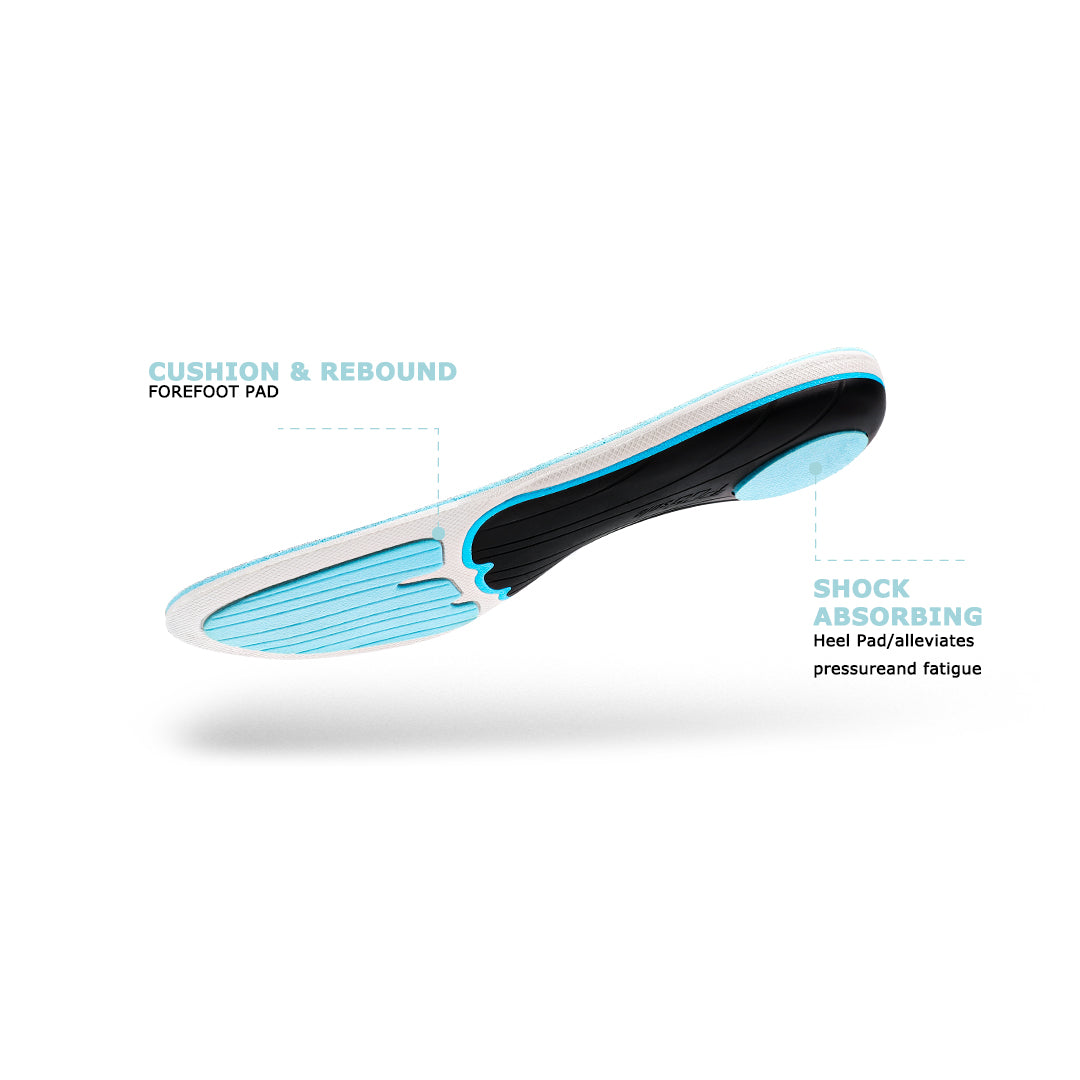
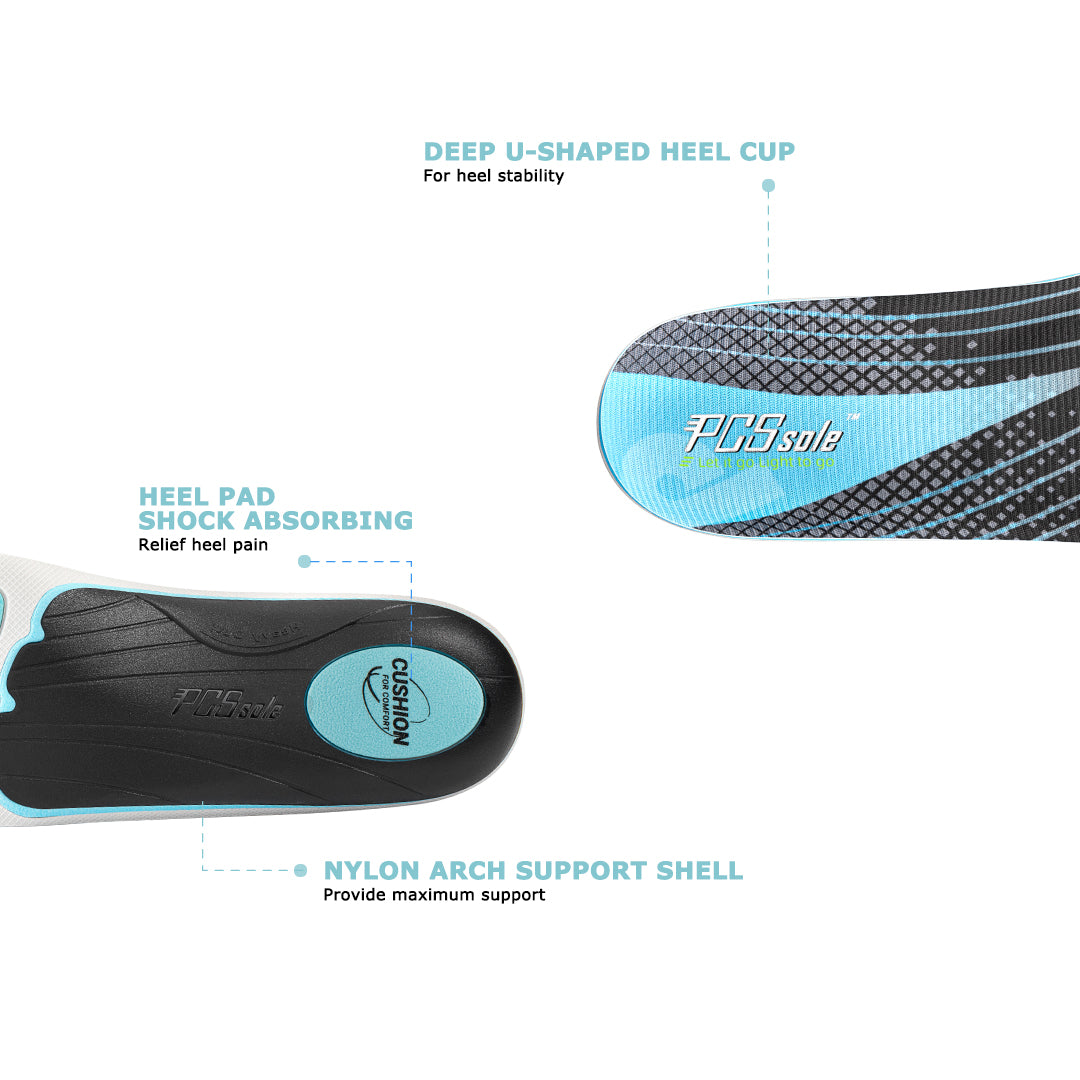
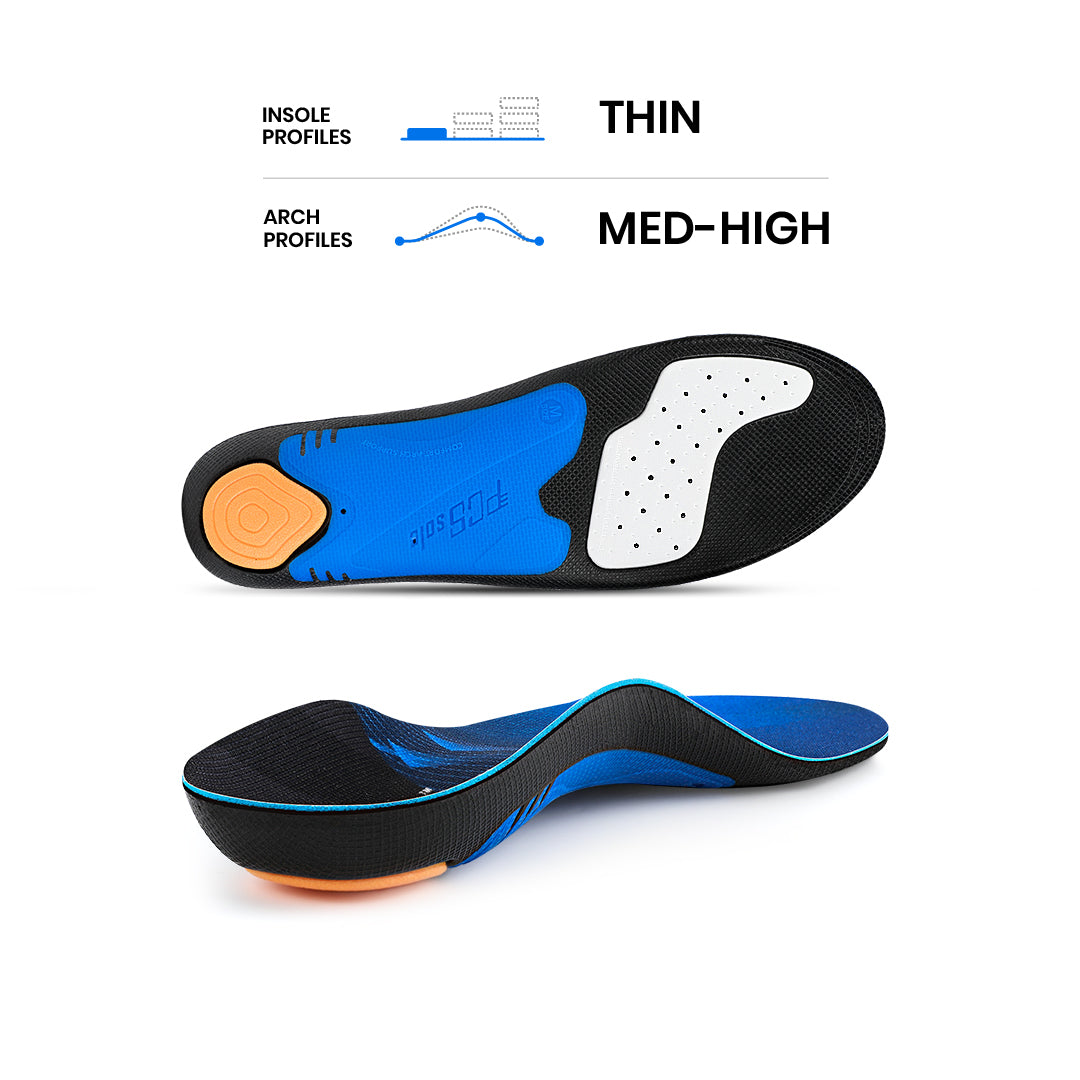
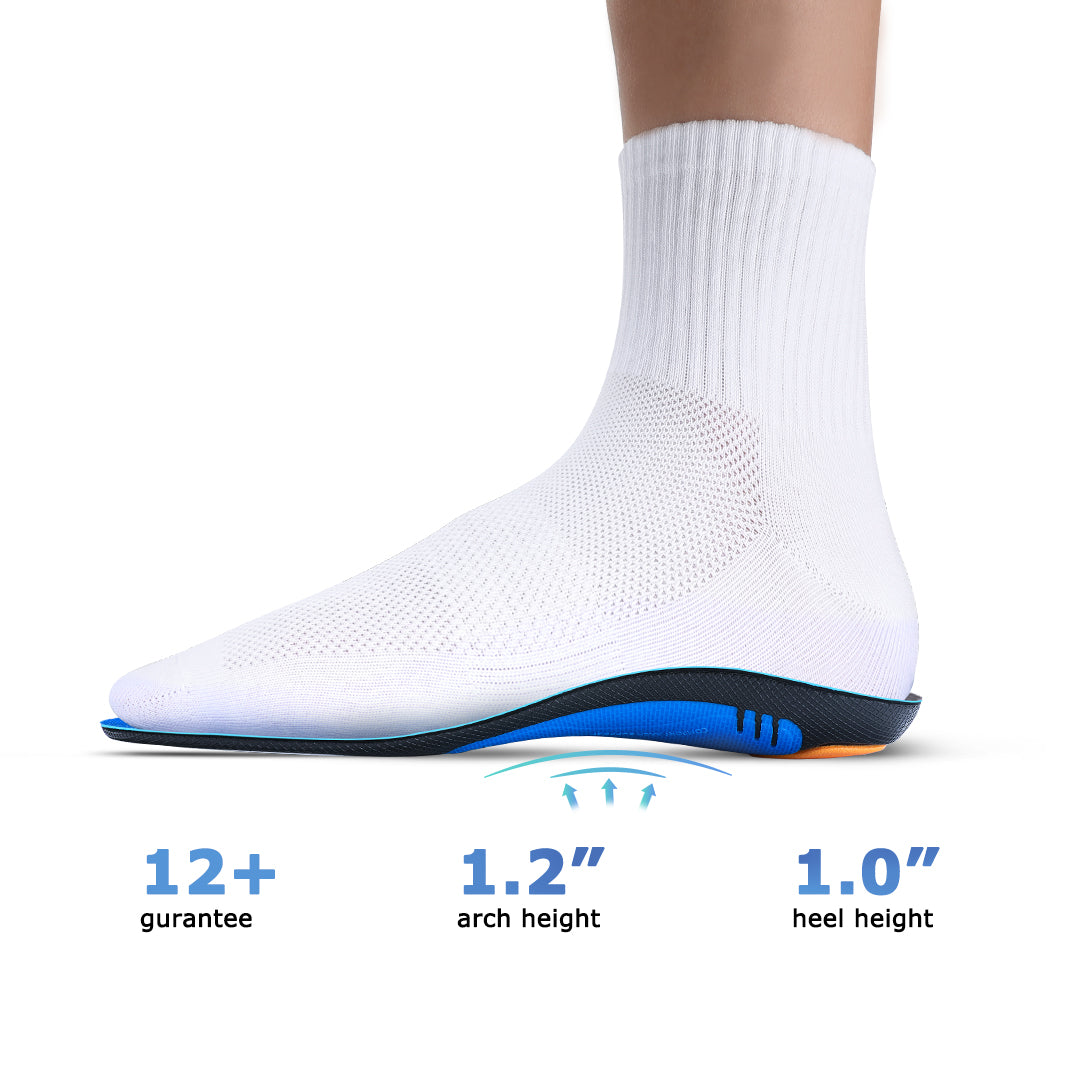
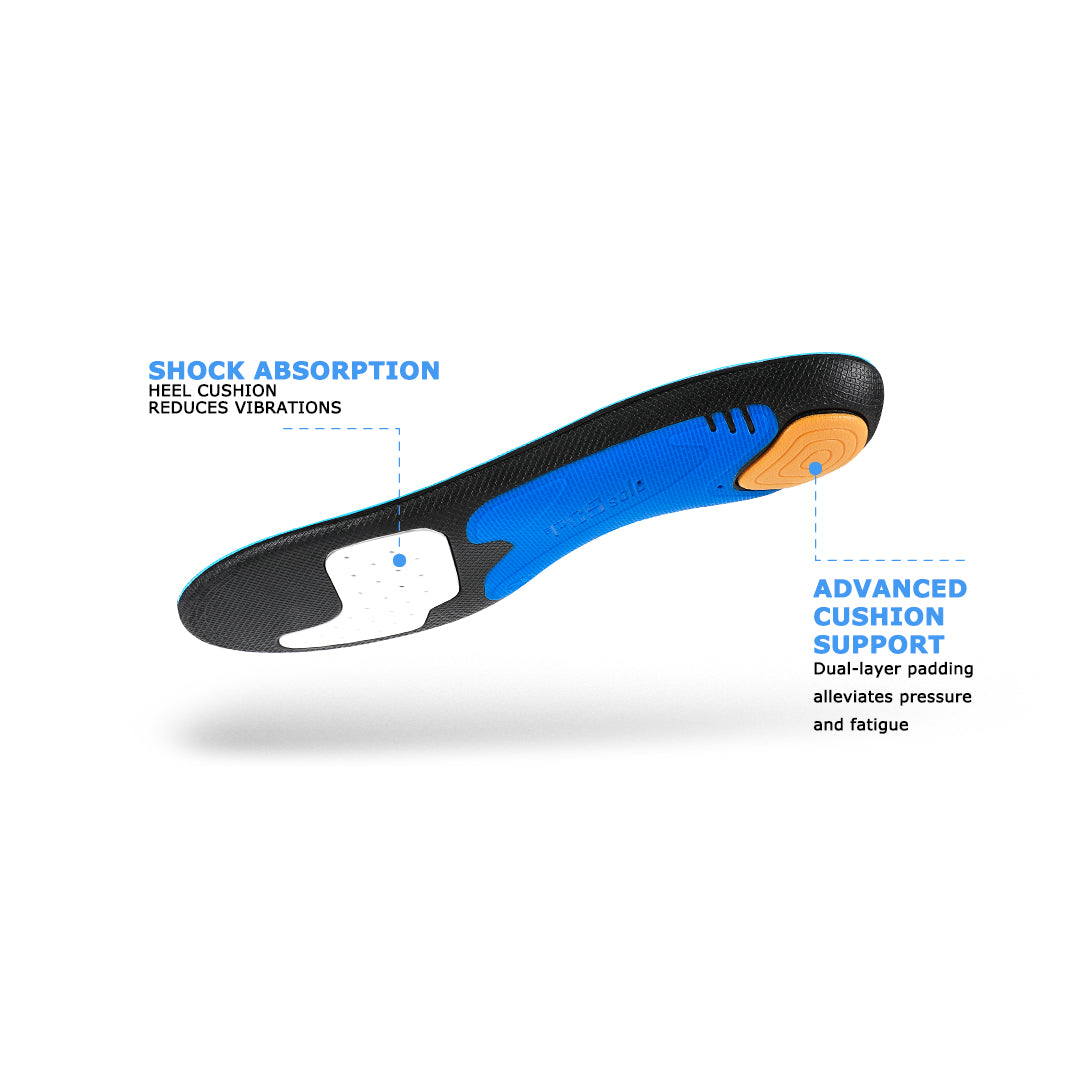
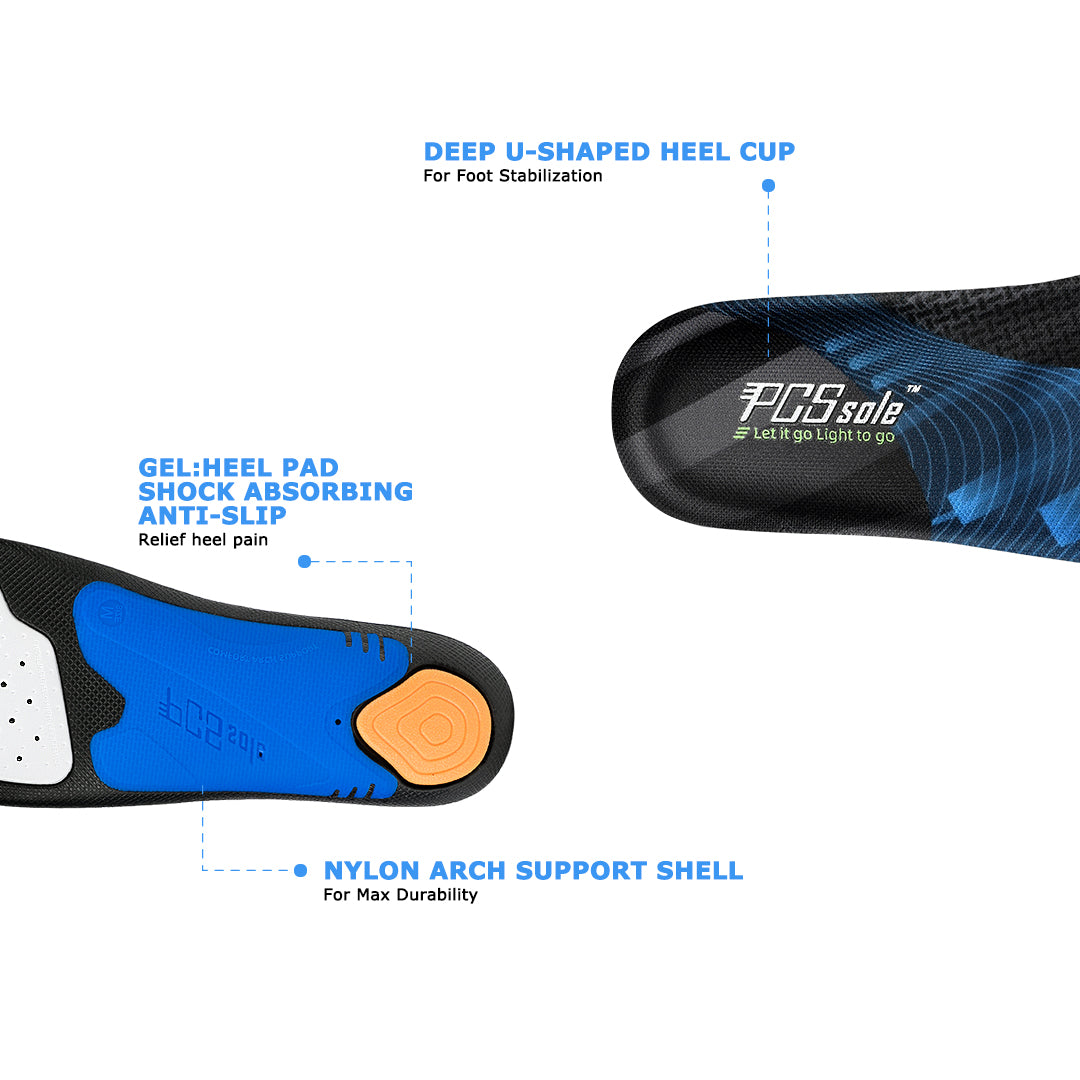
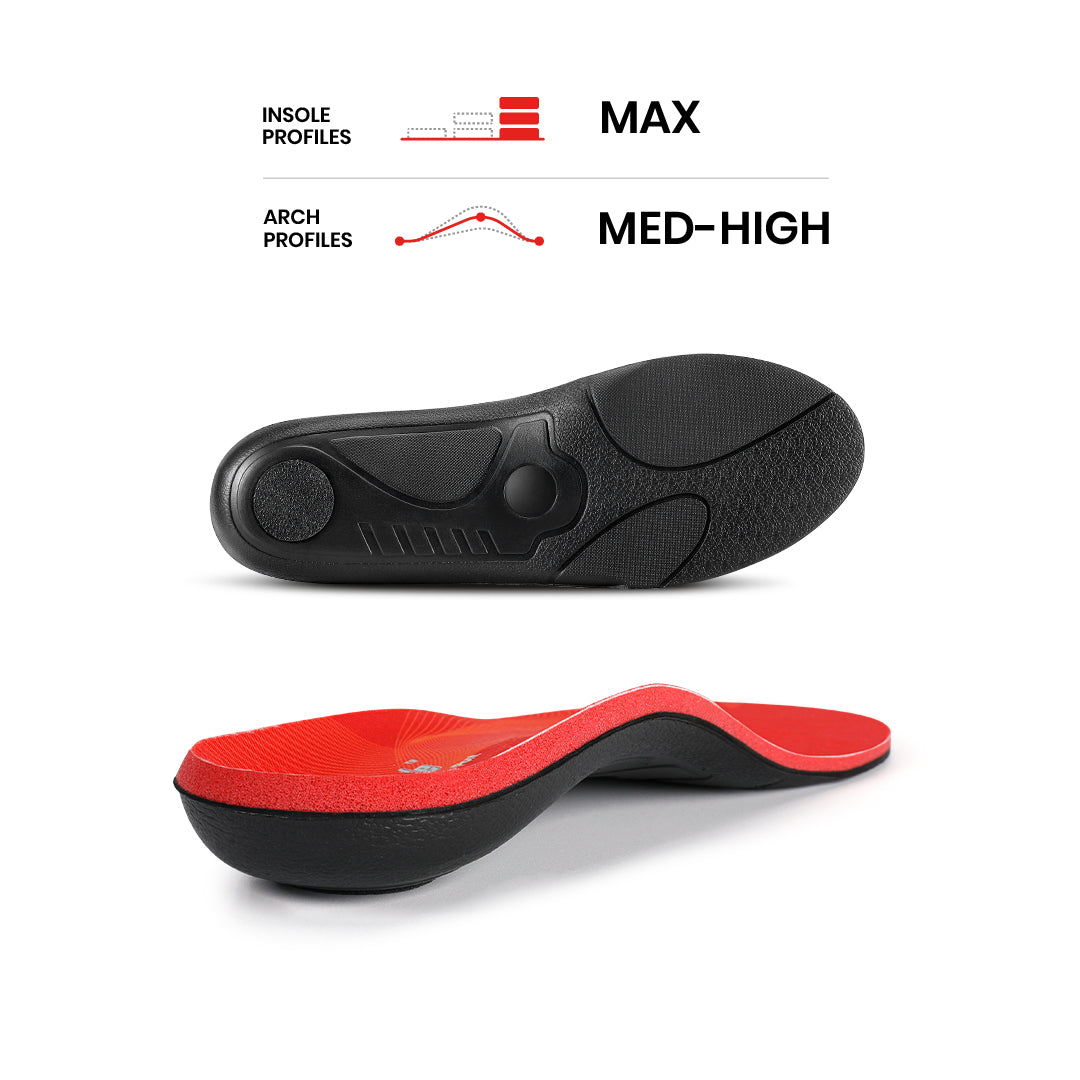
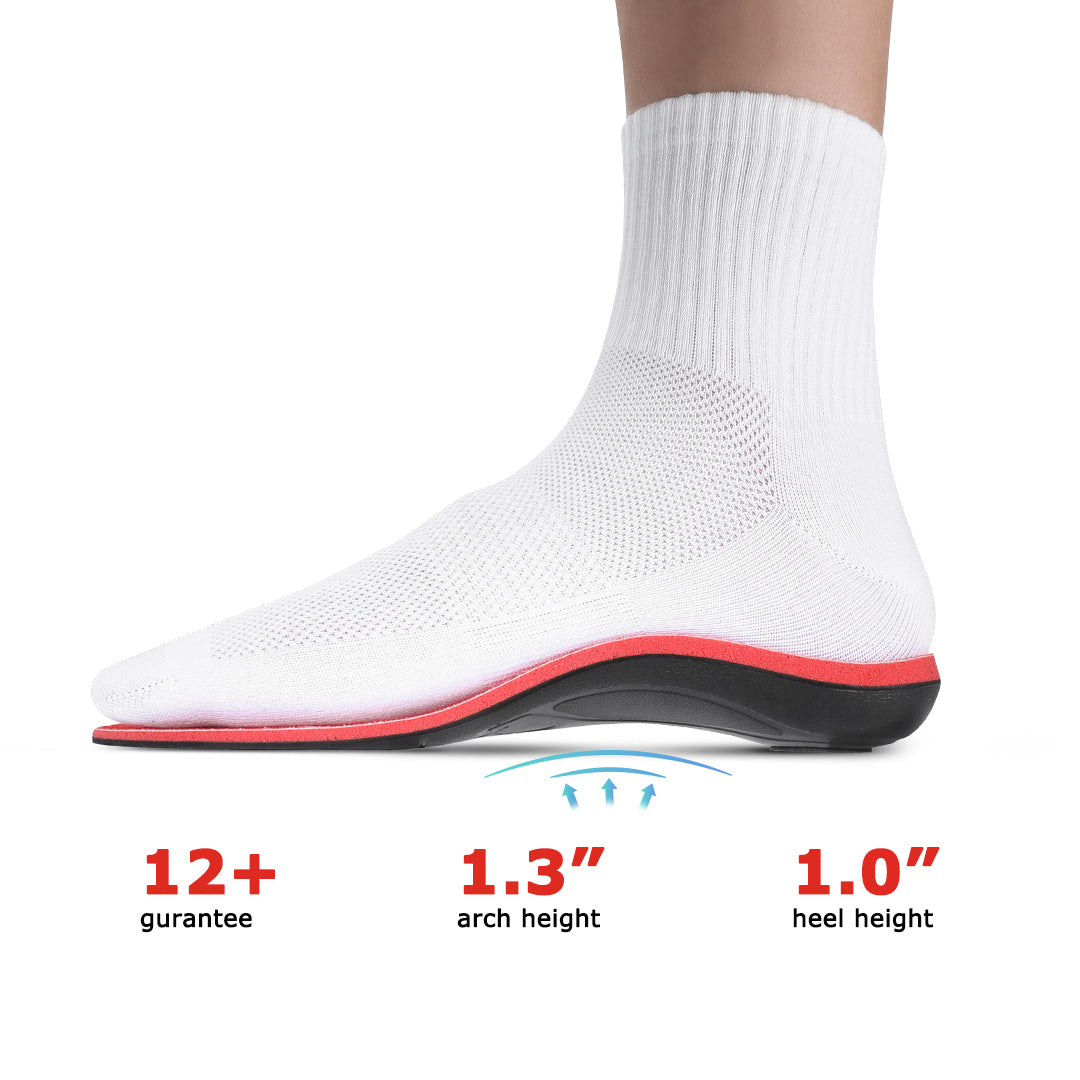
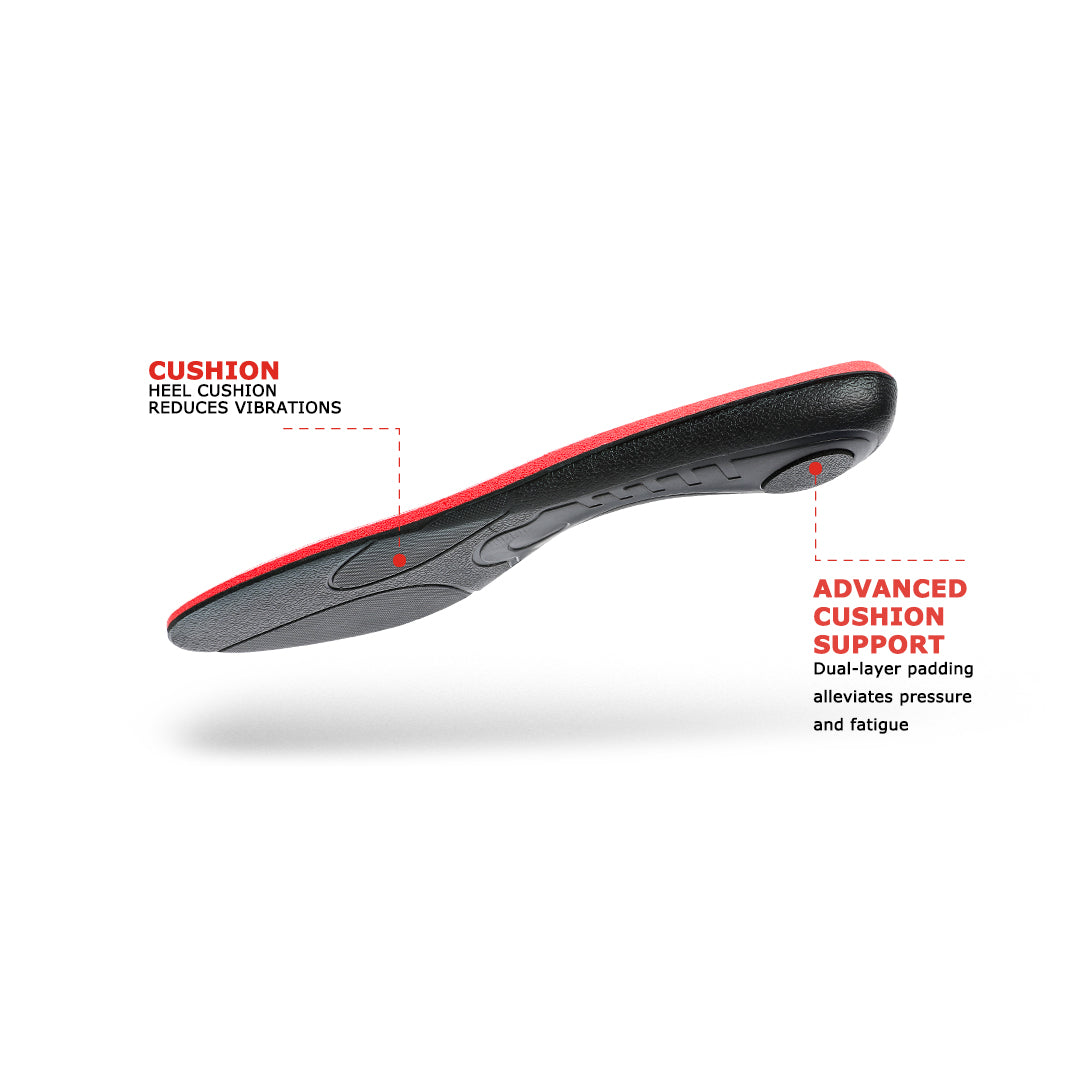
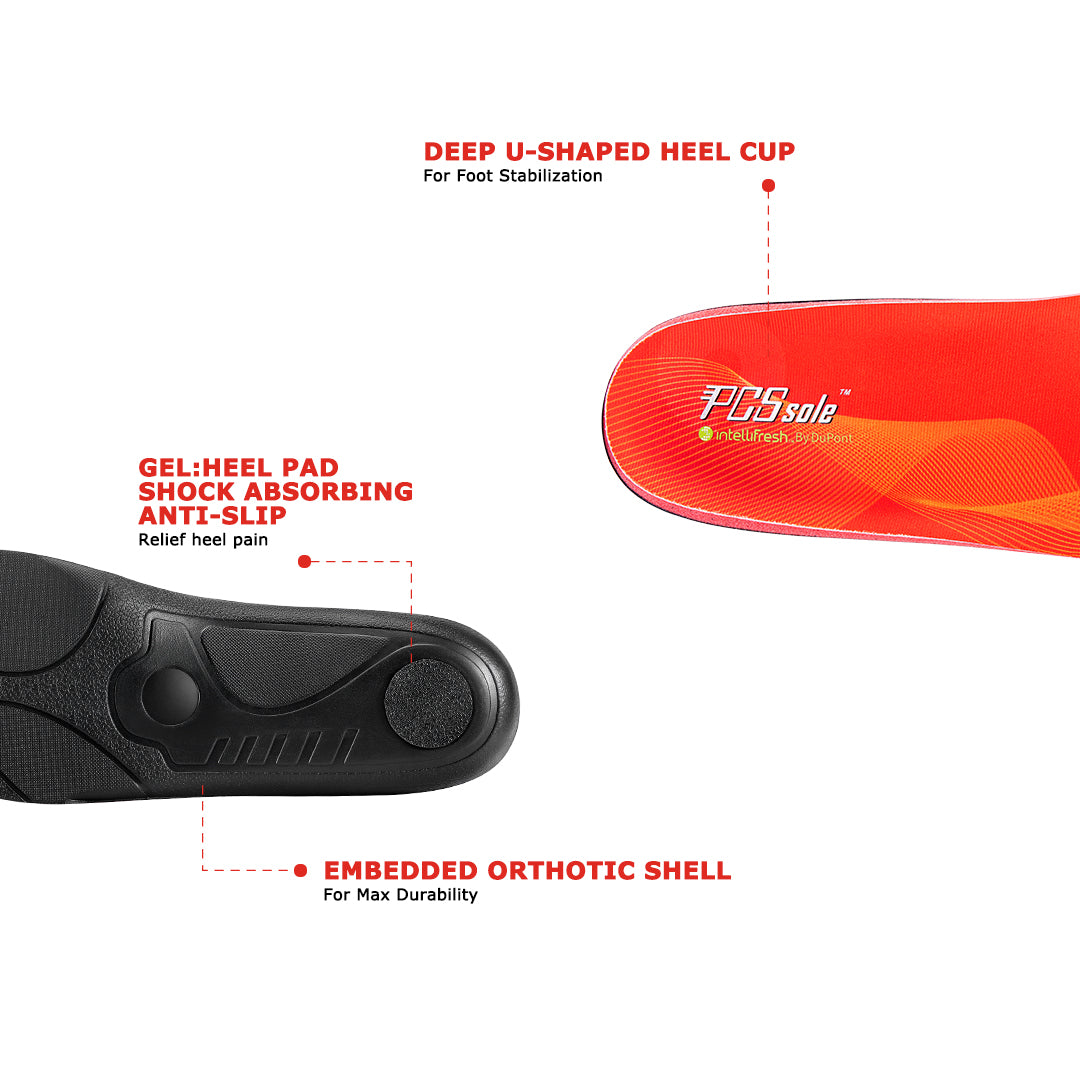
Share:
Flat Feet: Often Neglected and Forgotten Parts of the Body
Best Insoles for Walking All Day:A Guide to Pain-Free Movement